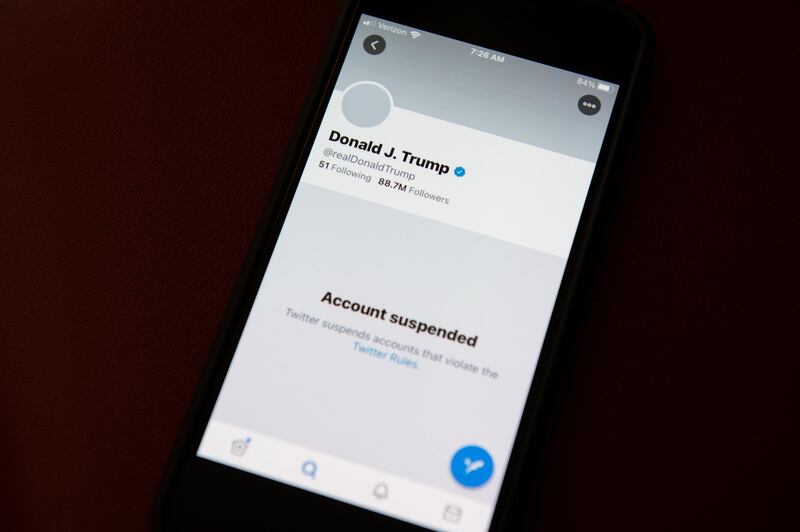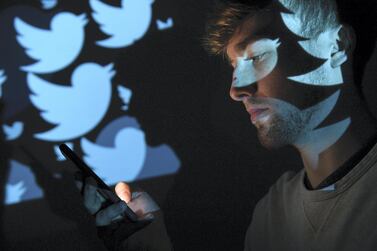German Chancellor Angela Merkel declared Twitter's exclusion of the US president from its platform problematic on Monday, after an EU official warned of a 9/11 moment for social media.
Disquiet over the power of US social media has led to European politicians warning that governments should not outsource decision-making to Silicon Valley entrepreneurs.
European leaders already chafe at the lack of regulation of the mostly American big technology firms.
"The fundamental right to freedom of expression is a fundamental right of elementary importance," said Mrs Merkel's spokesman Steffen Seibert. "This fundamental right can be interfered with, but within the framework of the law and within the framework defined by the legislature – not according to the decision of the corporate management of social media platforms."
From this point of view, he said the chancellor sees it as "problematic" that Trump's accounts have been permanently blocked.
Responsibility to ensure political communication is "not poisoned" by hatred, lies or incitement to violence is not the same as acting as the gatekeeper for political communications networks.
Thierry Breton, the commissioner responsible for regulation in Brussels, said the storming of the Capitol in Washington last week marked a turning point in history. “Just as [September 11th] marked a paradigm shift for global security, 20 years later we are witnessing a before-and-after in the role of digital platforms in our democracy," he wrote. “The fact that a CEO can pull the plug on POTUS’s loudspeaker without any checks and balances is perplexing. It is not only confirmation of the power of these platforms, but it also displays deep weaknesses in the way our society is organised in the digital space.
"We need to set the rules of the game and organise the digital space with clear rights, obligations and safeguards. We need to restore trust in the digital space. It is a matter of survival for our democracies in the 21st century,” Breton argued.
The permanent blocking of Donald Trump's account, which had 88 million followers, was taken because of the risk of "further incitement to violence", Twitter said.
After close review of recent Tweets from the @realDonaldTrump account and the context around them we have permanently suspended the account due to the risk of further incitement of violence.https://t.co/CBpE1I6j8Y
— Twitter Safety (@TwitterSafety) January 8, 2021
Mr Trump's follower roll is equivalent to half Twitter's average daily active users.
Sites such as Twitter and Facebook insist they are not publishers and maintain light-touch regulation of user content. Shortly after the decision, Twitter removed tweets by the Iranian leader Ayatollah Ali Khamenei who had cast unsubstantiated doubts on coronavirus vaccines.
French Finance Minister Bruno Le Maire said that the state and not “the digital oligarchy” should be responsible for regulation of speech, describing social media as “one of the threats” to democracy.
Manfred Weber, the leader of the centre-right parties in the European Parliament, told Politico that a change was necessary.
“We cannot leave it to American big tech companies to decide how we do and do not discuss what can and cannot be said in a democratic discourse. We need a stricter regulatory approach,” Mr Weber said.
A dogma has collapsed.
— Thierry Breton (@ThierryBreton) January 10, 2021
Platforms no longer hide their responsibility by arguing that they merely provide hosting services.
Capitol Hill is the 9/11 moment of social media.
Op-ed @POLITICO👇https://t.co/tezIQ0WocY pic.twitter.com/uI2BprTRVy
The European Union is currently in the process of adopting rules to give the bloc power to split up platforms.
Facebook's chief executive Mark Zuckerberg said Trump’s most recent posts showed he intended to use his remaining time in office to undermine a peaceful and lawful transition of power.







